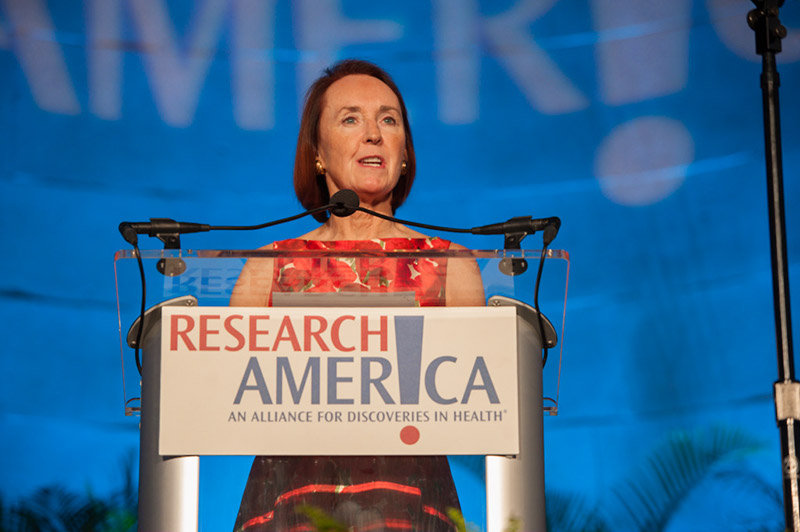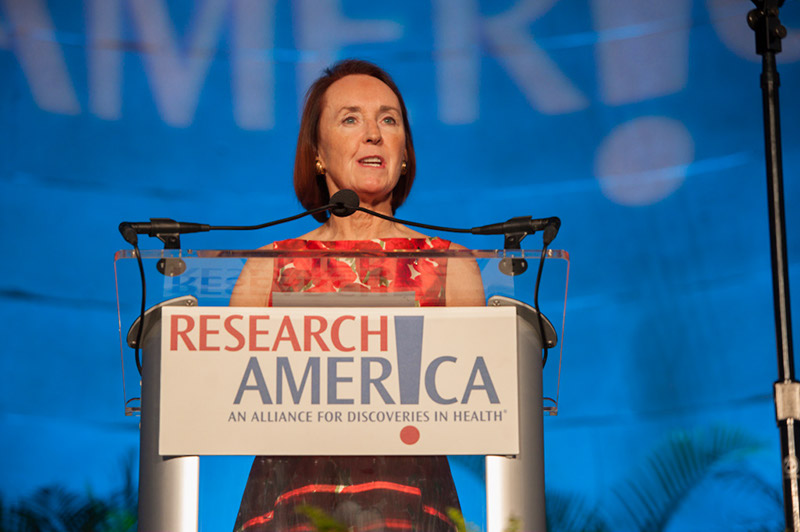Public Sentiment


Dear Research Advocate,
Researchers at Yale and George Mason University released a report this week reflecting Americans’ attitudes on climate change, including its impact on health. Queried in April, in the midst of the pandemic, respondents registered high levels of concern, surprising researchers who had anticipated the pandemic would have displaced climate as a top issue. That Americans link climate change and health correlates with our own survey data from earlier this year (pre-pandemic) in America Speaks! Poll Data Summary.
Just released today, a new Pew Research Center report shows that a growing number of Americans, surveyed recently, say they have a “great deal of confidence in medical scientists to act in the best interests of the public.” The less good news — in a report brimming with insights — is the widening partisan divide on trust in scientists.
Especially in the context of that divide, it is great to see the emergence of two new science-friendly, bipartisan policy bills.
First, Senators Kirsten Gillibrand (D-NY), Marco Rubio (R-FL), Ed Markey (D-MA), and Cory Gardner (R-CO) have introduced the Bioeconomy Research and Development Act (S.3734) to create an initiative at OSTP to advance R&D and biomanufacturing, as well as develop the future bioeconomy workforce.
Second, Senators Chuck Schumer (D-NY) and Todd Young (R-IN) are close to introducing the “Endless Frontiers Act.” The title of the bill is a reference to the 1945 Vannevar Bush report, Science, the Endless Frontier, largely credited with providing the launching pad for U.S. leadership in science for generations. From the USA Today op-ed authored by Senators Schumer and Young and Representatives Ro Khanna (D-CA-17) and Mike Gallagher (R-WI-8), who are working on a companion bill in the House, making the case for more science now: “Our own history proves that smart, targeted and substantial public investments in the infrastructure and talent necessary to produce cutting-edge scientific breakthroughs will result in higher rates of economic growth, sustained job creation and greater wealth creation.” While we are still digging through the details of both proposals, we certainly applaud efforts like these which aim to make science a higher national priority.
Also on Capitol Hill: Late last week, the House passed the Health and Economic Recovery Omnibus Emergency Solutions (HEROES) Act, a “marker” bill detailing Democratic priorities for a next COVID-19 relief package. It will likely be several weeks before the House and Senate coalesce around a compromise package. Reach out to your members of Congress to urge the inclusion of the resources needed to empower the recovery of the research enterprise in the wake of COVID-19.
Along with COVID-19 recovery funding, the FY21 appropriations process is well underway. Recent conversations suggest House appropriators will mark up their 12 appropriations bills early this summer, with the Senate following a similar timeline. Senate Appropriations subcommittee chairs are likely to receive official allocations for their FY21 bills after the Senate returns from Memorial Day recess. Research!America submitted testimony earlier this week to the Senate Appropriations Subcommittee on Labor, Health and Human Services, and Education requesting increased funding for NIH, CDC, and AHRQ in FY21. You still have time to provide your own testimony on these key research funding priorities ahead of tomorrow’s deadline.
Research!America Alliance Members: Don’t forget to register to join us tomorrow, May 22 at 1 p.m. ET for our alliance member webinar with Dr. Victor Dzau, President of the National Academy of Medicine and a Research!America board member. Dr. Dzau will discuss what COVID-19 means for the scientific enterprise going forward. Following Dr. Dzau we will hear from Jennifer Cama with the House Labor-HHS Appropriations subcommittee. Please reserve your spot in advance. Dr. Dzau’s international relationship-building was featured in the news recently.
Veterans Health Administration (VHA) leaders, Drs. Carolyn Clancy, Deputy Under Secretary for Discovery, Education, and Affiliate Networks, and Rachel Ramoni, Chief Research and Development Officer, will join alliance members on Friday, May 26 at 2 p.m. to discuss VHA pandemic-related research and public-private partnerships. Alliance members can register here.
We hope you find our alliance member webinars worthwhile. If you missed one or want to revisit, see our COVID-19 resource page for recordings.
Awareness Saves Lives: Support for research and advocacy for mental illness is critical always but especially now as we work through quarantine and reopening the country responsibly. May is Mental Health Month; we have posted an article to our blog showing Americans’ growing concern about mental health and desire for increased public investment in mental health research.
Several of our fact sheets address mental health; all of our fact sheets (which are generously supported by the Lasker Foundation) are free to download and share.
Stay well, stay safe, and stay connected.
Mary Woolley




